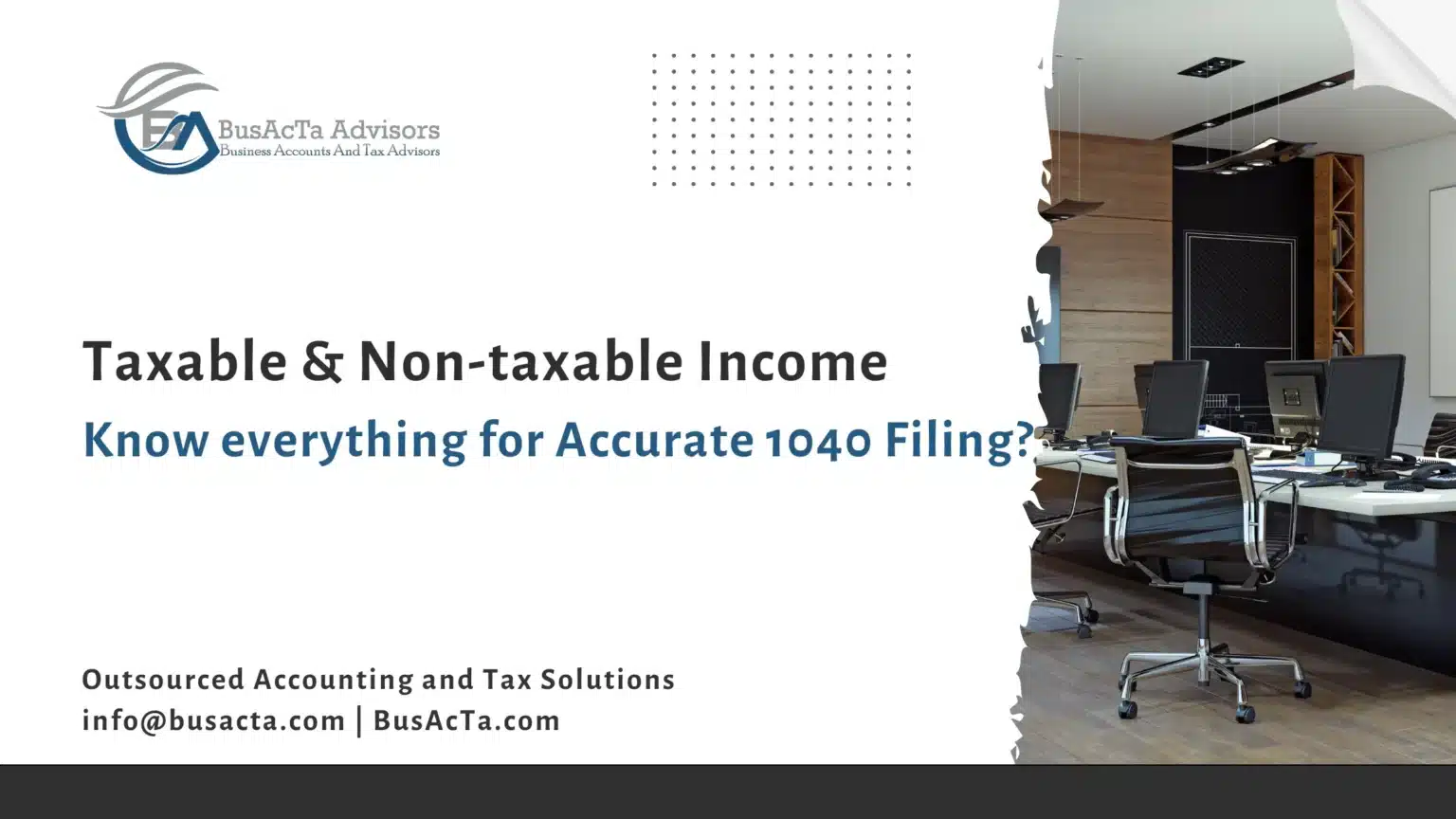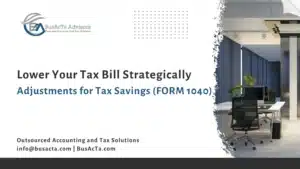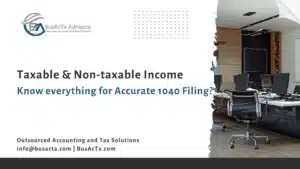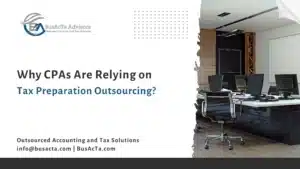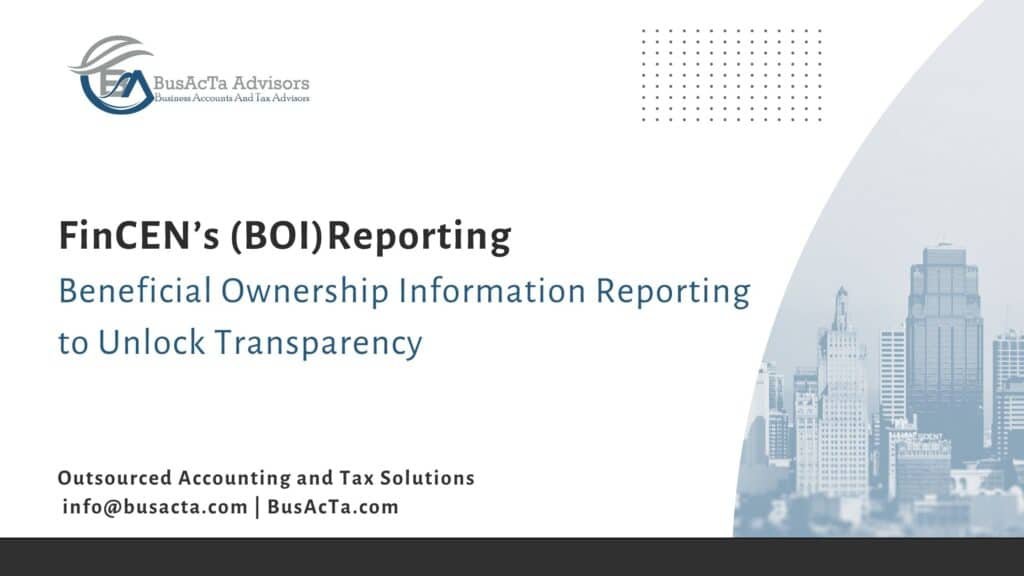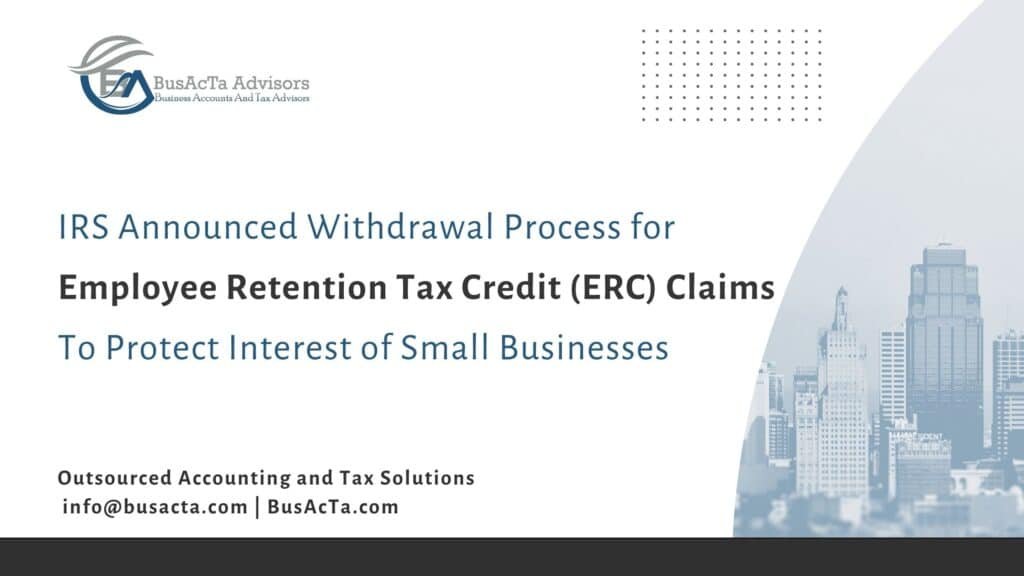Introduction
The primary goal of Form 1040 is to determine the amount of income tax you owe the IRS or the amount of a refund you may be due. You must know what income is taxed to ensure your tax return is correct and follows the law. Form 1040 must be used to report various forms of income because each person’s financial circumstances are unique. This blog is designed to help you understand what income will be taxed on your Form 1040, no matter how experienced you are with tax filing.
What is Income (Taxable vs. Non-Taxable)?
Income: In simple terms, income is the money or other financial gain that an individual receives, usually in exchange for goods or services. Income can be taxed or not taxed. Knowing the difference between taxable and non-taxable income is important for making sure you report your income correctly to the IRS and follow tax laws.
- Taxable Income: Any income that the government can tax is called “taxable income.” This includes salaries, wages, tips, commissions, bonuses, and money you make as a business owner.
- Non-Taxable Income: On the other hand, non-taxable income is exempt from taxes. Certain benefits, like child support, gifts, inheritances, and insurance proceeds, may fall under this category.
It is important to give the IRS correct information about all taxable income in order to avoid penalties and fines.
Taxable Income
Reporting all taxable income to the IRS is essential to ensure compliance with tax laws and avoid potential penalties.
Common Income Sources
- Wages, Salaries, Bonuses, and Commissions: The amount received for providing services to employers will be taxable. You can find all employment compensation on Form W2 received from your employer.
- Self-employment Income: It refers to earnings made by people who work for themselves rather than an employer, and it can be freelance work, consulting, or running a small business. Individuals should maintain accurate records of income and expenses to figure out their net income. You must report income from self-employment on Schedule C and also need to pay self-employment taxes on such income.
Investment and Property Income
- Dividends and Interest Income: The returns generated from investing in stocks, bonds, or savings accounts are called dividends and interest income. Interest or dividend income will show up on Form 1099-B, 1099-DIV, or 1099-INT.
- Rental Income from Properties: The amount received on renting out apartments, houses, or business spaces will be reported to the IRS. You have to disclose property-wise income and expenses on Schedule E of Form 1040; you will list rental income.
- Capital Gains: Capital gains from selling stocks and real estate properties will be subject to tax. This gain can be found on Form 1099-B. You must prepare Schedule D of Form 1040 to report this income.
Unplanned Income
- Gambling winnings: Gambling winnings from casinos, online betting, lucky tickets, or casino jackpots must be reported on your tax return.
- Alimony: Alimony is any money you receive from your ex-spouse on a divorce settlement. The amount will be taxed for those who get divorced before 2019. Now, alimony will no longer be taxable for the recipient, and also not deductible for payers.
- Inheritance and trusts: Money received from a trust or an inheritance is also taxable income, which you must report on your tax return.
Government and Legal
- Unemployment Compensation: This is the money that the government gives individuals who are no longer employed and looking for work. This kind of pay is meant to help those who have lost their jobs, and it’s paid for by taxes that employers pay. Because it’s a form of social insurance, it helps people with their money until they can find new work.
- Jury duty fees: People serving on a jury are paid for their time. Jurors are given this fee to help pay for food and transportation while on duty. Employers should know that workers may be able to take time off to do their civic duty without worrying about losing money, since some employers may choose to pay some or all of their workers’ duty fees.
Retirement and Savings
- Annuities, pensions, and IRAs: Annuities offer regular payments in exchange for a lump sum. Pensions promise a steady income after retirement, while annuities give you regular payments from insurance companies. With an Individual Retirement Account (IRA), you can save money, invest, and get tax breaks simultaneously. Form 1099-R is received upon receipt of income, which must be reported on Form 1040.
- Social Security Benefits: This is the government’s financial assistance program that is funded through payroll taxes. These benefits provide essential income to eligible individuals during retirement, disability, or after a spouse’s death. Depending on your income, a portion of these benefits will be taxable.
Miscellaneous Income
- Awards, Prizes, and Rewards: When computing your taxable income, you must include cash prizes, gift cards, vacations, and other valuable prizes you win in contests, game shows, and other competitions.
- Debts forgiven: Creditors cancel or write off as a loss any amount of money that is owed. This is called “forgiven debt.” The debt that was forgiven is taxed as income for the person who had the debt forgiven, unless they meet certain IRS exceptions or exclusions
- Employee Awards and Bonuses: This includes any compensation a company may offer in exchange for exceptional performance or accomplishments, such as cash bonuses or gift cards.
- Employer-funded disability benefits: This is sum of money that companies give to workers who are unable to work due to a disability. It covers a portion of the employee’s salary for a specified period while the employee cannot work.
Non-taxable Income
Even though non-taxable income is not subject to federal income tax, some of the non-taxable income still needs to be reported on your tax return. By including non-taxable income in your tax return, you can still benefit from certain tax credits and deductions that may be based on your total income. Reporting this income ensures that the IRS has a complete picture of your financial situation and can accurately assess your tax liability. It is important to accurately report all sources of income, taxable or not, to avoid potential penalties or audits.
Gifts and Support
- Child Support: Child Support payments are not considered taxable income to the recipient. This includes the financial assistance one parent gives the other for their child’s upbringing and care. This exemption provides a helpful financial resource for custodial parents and helps ensure that the child’s best interests are met without additional tax burdens.
- Gifts and Inheritances: The Gifts and Inheritances Exemption lets people receive money as gifts or inheritances without having to pay extra taxes. This exemption makes it easier for family members to transfer assets, so loved ones can leave their money to someone else without putting extra strain on their finances.
Insurance and Compensation
- Worker’s compensation: Worker’s compensation is an insurance program that helps employees who get sick or hurt at work by giving them money. This kind of protection makes sure that workers keep their jobs and gives them peace of mind in case of an accident at work.
- Life Insurance Proceeds: Life insurance proceeds on death are tax-free for recipients. This applies to both term and permanent life insurance policies, providing financial support without additional strain. Life insurance proceeds can cover funeral expenses, pay off debts, replace lost income, and offer financial stability for loved ones.
Government Programs
- Federal Income Tax Refunds: These are the amounts that taxpayers get back from the government if they over paid taxes in previous years. Tax refunds from the federal government are not taxed, but interest earned on those refunds is taxed.
- Social Security benefits: Some social security benefits may be taxable, but certain benefits could be tax-free depending on your overall income.
Educational and Health
- Scholarships and Grants: Scholarships and grants are non-refundable financial aid options for students, that help them cover the cost of their education. These funds can support medical research, healthcare initiatives, and access to healthcare services for those in need.
- Payments for Injury: Compensations for physical injury refer to payments or benefits provided to individuals who have suffered harm due to an accident, negligence, or intentional damage. They help to cover medical expenses, lost wages, pain and suffering, and other related costs incurred as a result of the injury. Also, they may include income replacement benefits for individuals unable to work due to their injuries. Compensations for physical injury or sickness (excluding punitive damages) are not taxable.
Miscellaneous
- Aid to Families with Dependent Children (AFDC): This program provides financial assistance to low-income families with dependent children, supporting their basic needs and overall well-being. This aid aims to help families meet their basic needs and support the well-being of their children. AFDC funds are typically used for necessities such as food, shelter, and clothing.
- Temporary Assistance for Needy Families (TANF): TANF is a federal program that offers temporary financial assistance to low-income families with dependent children. It promotes self-sufficiency through cash assistance, job training, and childcare support. However, depending on individual circumstances, assistance may be taxable.
- Veterans’ benefits: Veterans’ benefits are government-provided programs and assistance for military personnel, including healthcare, education, disability compensation, and housing assistance. These programs aim to help veterans transition back into civilian life and ensure they have access to necessary resources. Veterans’ benefits are exempt from federal taxes.
- Stock options: When you exercise your stock options and buy company stock, you may have taxable income based on the difference between the price you paid and the stock’s fair market value.
Conclusion
This guide tells you about taxable and non-taxable income for a smooth tax filing process. It stresses the importance of talking to a tax professional for personalized help and correct reporting of income, deductions, and tax credits. In this way, you can be sure of getting a full tax return, avoiding penalties, and getting a refund.
Contact us at info@busacta.com for more personalized help on correctly reporting your income when you file your taxes. We can help you understand taxable and non-taxable income, tax credits, and deductions so that your tax return is correct and complete. Remember that getting help from a professional can help you avoid fines and get the most out of any refunds you can get.
FAQs
Answer: Most of the time, scholarships and grants for qualified school costs at eligible schools are not taxed as income. These are for students who want to get a degree and cover costs like tuition, fees, books, supplies, and tools needed for schoolwork.
However, there are some situations where scholarships and grants might be taxable:
- Excess funds: The remaining amount may be taxable if the scholarship or grant exceeds your qualified educational expenses.
- non-qualified expenses: If you use the funds for personal expenses unrelated to education, that portion might be taxable.
- Teaching or research assistantships: If the scholarship or grant is awarded in exchange for teaching, research, or other services, it may be considered taxable income (similar to wages).
Answer: If your modified adjusted gross income (MAGI) plus half of your Social Security benefits are more than a certain amount, you may have to pay taxes on a portion of your benefits.
- Awards for small amounts of cash: Most awards under a certain amount ($250) are not taxed.
- Gift certificates and goods are taxed at their full market value.








